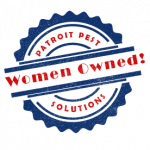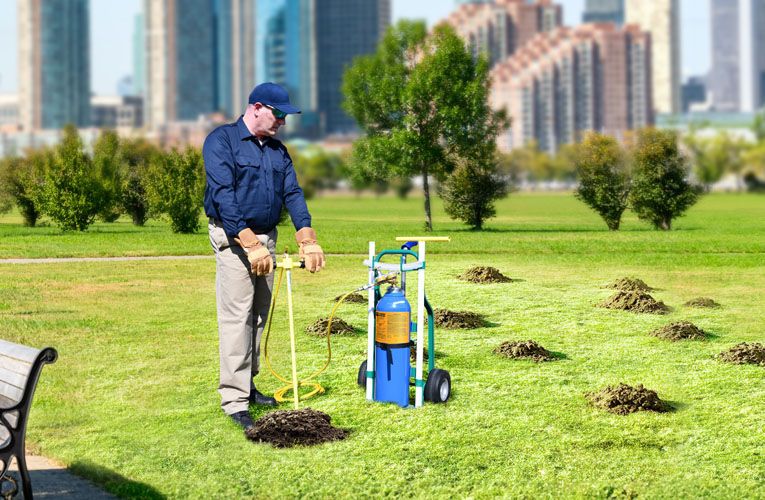When raccoons raid your garbage cans or bats take up residence in your attic, finding professional help becomes a priority. Wildlife encounters can escalate quickly from minor nuisances to serious property damage and health risks. The key lies in selecting a wildlife control company that handles your specific situation safely, effectively, and humanely.
Not all wildlife control services operate with the same standards or expertise. Some focus on quick fixes that may create bigger problems down the road, while others prioritize comprehensive solutions that prevent future encounters. Understanding what separates professional wildlife control from amateur pest removal can save you time, money, and additional headaches.
This guide walks you through the essential factors to consider when choosing a wildlife control company, from verifying credentials to understanding different removal methods. You’ll learn what questions to ask, what red flags to avoid, and how to ensure the company you hire will resolve your wildlife problem for good.
Verify Licensing and Insurance Coverage
Professional wildlife control requires specific licenses that vary by state and the types of animals being handled. Companies should hold current pest control licenses, and in many areas, additional permits for handling protected species like certain birds or mammals. Ask to see these credentials upfront.
Insurance coverage protects both you and the service provider. Comprehensive liability insurance covers potential property damage during removal operations, while workers’ compensation protects you from liability if technicians are injured on your property. Request proof of current insurance certificates before any work begins.
Some wildlife control companies also maintain certifications from professional organizations like the National Wildlife Control Operators Association (NWCOA). These voluntary certifications demonstrate commitment to industry standards and ongoing education in wildlife management techniques.
Assess Experience with Your Specific Wildlife Issue
Different animals require different approaches, and experience matters significantly. A company skilled in bird removal may lack expertise in handling larger mammals like coyotes or bears. Ask potential providers about their specific experience with your wildlife problem.
Inquire about the volume of similar cases they handle annually. Companies that regularly deal with your particular wildlife issue will have developed efficient, proven methods. They’ll also be familiar with seasonal patterns, behavior triggers, and the most effective exclusion techniques for that species.
Request references from recent customers who faced similar wildlife challenges. Speaking with previous clients provides insights into the company’s problem-solving approach and long-term success rates.
Evaluate Humane Removal Methods
Modern wildlife control emphasizes humane removal and relocation practices. Companies should explain their methods clearly and demonstrate respect for animal welfare while prioritizing human safety. Avoid services that rely primarily on lethal control methods when humane alternatives exist.
Look for companies that use live trapping and relocation when appropriate, along with exclusion techniques that prevent animals from returning. The best providers focus on addressing root causes like entry points and attractants rather than simply removing animals temporarily.
Ask about their policies regarding different species, especially protected wildlife. Professional companies understand legal requirements and ethical considerations for various animals and should be willing to explain their approach to each situation.
Review Comprehensive Service Offerings
Effective wildlife control extends beyond simple animal removal. Look for companies that provide thorough property inspections to identify entry points, damage assessment, and detailed exclusion plans. Comprehensive services should include sealing access points and implementing deterrent measures.
Many wildlife problems stem from structural vulnerabilities or environmental attractants. Companies offering complete solutions address these underlying factors through repairs, habitat modification recommendations, and ongoing monitoring services.
Consider whether the company provides emergency services for urgent situations. Some wildlife encounters, particularly those involving potentially dangerous animals or immediate health risks, require prompt professional response.
Compare Pricing and Service Guarantees
Wildlife control pricing varies significantly based on the complexity of the situation, species involved, and extent of exclusion work required. Obtain detailed written estimates from multiple companies, ensuring quotes include all aspects of the service from initial inspection through final exclusion.
Be cautious of unusually low bids, which may indicate corner-cutting or hidden costs. Conversely, extremely high quotes don’t automatically guarantee better service. Focus on the value proposition considering the company’s experience, methods, and guarantee terms.
Service guarantees demonstrate confidence in workmanship and provide recourse if problems persist. Look for warranties covering both removal effectiveness and exclusion work. Understand what situations void the guarantee and what follow-up services are included.
Check References and Online Reviews
Contact recent customers to learn about their experiences with the company’s professionalism, effectiveness, and follow-through. Ask specific questions about problem resolution, cleanup quality, and whether any issues recurred after service completion.
Online reviews across multiple platforms provide broader perspective on company performance. Look for patterns in feedback, paying attention to how companies respond to negative reviews and whether they address customer concerns professionally.
Check with local Better Business Bureau offices for complaint histories and resolution records. Companies with strong reputations typically maintain good standing with consumer protection organizations.
Understand the Service Process
Professional wildlife control follows systematic approaches beginning with thorough property inspections. Companies should explain their process clearly, including timeline expectations and any preparations required from property owners.
Ask about cleanup and sanitization services, particularly important when dealing with animals that leave droppings or nesting materials. Some species carry diseases transmissible to humans, making proper cleanup essential for health protection.
Understand the company’s communication practices throughout the service period. Regular updates help you stay informed about progress and any complications that arise during the removal process.
Make Your Decision With Confidence
Selecting the right wildlife control company requires balancing multiple factors including expertise, methods, pricing, and reliability. Take time to thoroughly evaluate potential providers before making your decision, as rushing this choice often leads to inadequate solutions and recurring problems.
Document your selection criteria and compare each company objectively. Consider creating a simple scoring system covering the factors most important to your situation. This systematic approach helps prevent emotional decision-making during stressful wildlife encounters.
Remember that the cheapest option rarely provides the best long-term value. Invest in comprehensive services from experienced professionals to resolve your wildlife problem permanently and prevent future occurrences.


